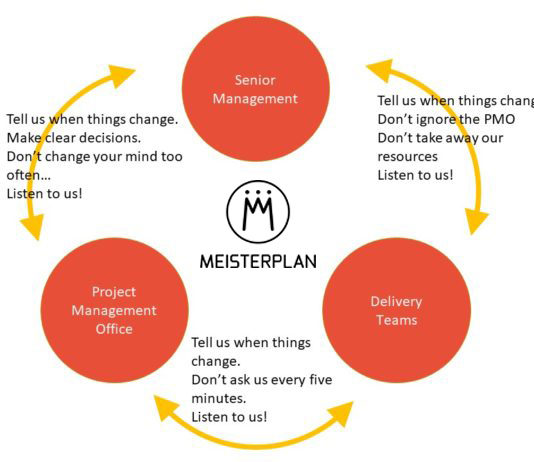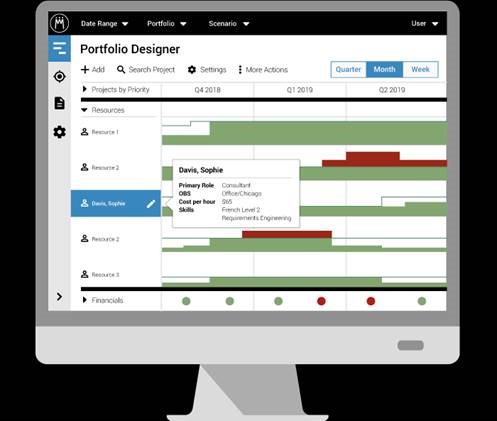Trust is Key to Project and Portfolio Management
The Image above is not money.
Well, OK, it is money, but not in the way that I mean.
‘Will pay the Bearer on Demand’ – not actually on US $10 bills anymore, but still present on other currencies around the world.
It’s actually a promise, or more accurately, it’s a substitute for trust.
Trust, which can be dented very easily.
This, I suggest, can be extended to the world in general.
- I trust that the taxi driver will arrive on time and take me the shortest, cheapest route
- I trust that the kilo of bananas handed to me in the market will actually weigh a kilo
- I trust that the ingredients list will be accurate
I don’t check these things before I commit to them and they’re something that would probably be easy to cheat. I trust that the person will deliver the service as described, but, if they don’t, I’m disappointed and less likely to use them again.
However, if they don’t live up to the promise, these aren’t life-changing failures and I’m not going to dwell on them too much. Maybe the roads were busy, maybe the scales were wobbly, maybe it was a new chef… I’m only going to invest so much effort in checking the failure or investigating alternatives, because it simply isn’t worth my time.
Unless, of course, there was something important attached to one of these failures. A critical dependency, if you like. Say, the taxi was taking me to the airport or I had a severe nut allergy. If there’s a risk that something serious may happen as a consequence of a failure, I’m going to be wary and check more often and with more rigour. I’m going to concentrate on the things that really matter to me, to the level of detail that’s appropriate.
But remember, trust is circular.
- The taxi driver assumes I’m going to be there and I’m going to pay the fare
- The market trader trusts me to pay the right amount
- The chef trusts that I’ll be honest about whether I like the dish and will pay for it
The parallel is clear – efficient management is also built on trust – and is just as circular!

- A PMO does not have the time to check on every last task and it shouldn’t have to. It needs to trust that the project is on track, unless otherwise informed. It also needs to trust that
- PM’s should be able to trust that their resources are not going to be removed and that, when difficulties happen and are reported, the PMO and senior management will take notice.
- Senior management should be able to trust that they’re getting an accurate picture of the business, so they can make informed decisions about the future
Meisterplan is designed to encourage that level of trust and, with it, efficient working.
- It enables each of these groups to communicate effectively and at the appropriate level, without excessive admin, time or cost.
- Users can see a clear picture of what they’re working on, when, the priority of the work and what depends on everyone delivering it.
- The PMO understands the current position and can mitigate risk by scenario planning possible options for the future
- Managers can see the areas for which they’re responsible, and the potential implications of their decisions.
Because things are transparent, it’s much easier to for everyone to see their part in the work of the whole enterprise.
However, we can only encourage trust, not make it happen. It’s not hard to break – repeated poor behaviour (missed deadlines without notice, a ‘deaf ear’ to warnings, removal of resources, unexplained changes in priority etc.), can rapidly undermine trust and take us back to the level of continuous checking.
Which wastes time, money, effort, energy, goodwill… So, use Meisterplan, improve your trust of each other and get on with the things that matter, not the things that don’t.
Learn to trust and be trusted – improve the circulation.


